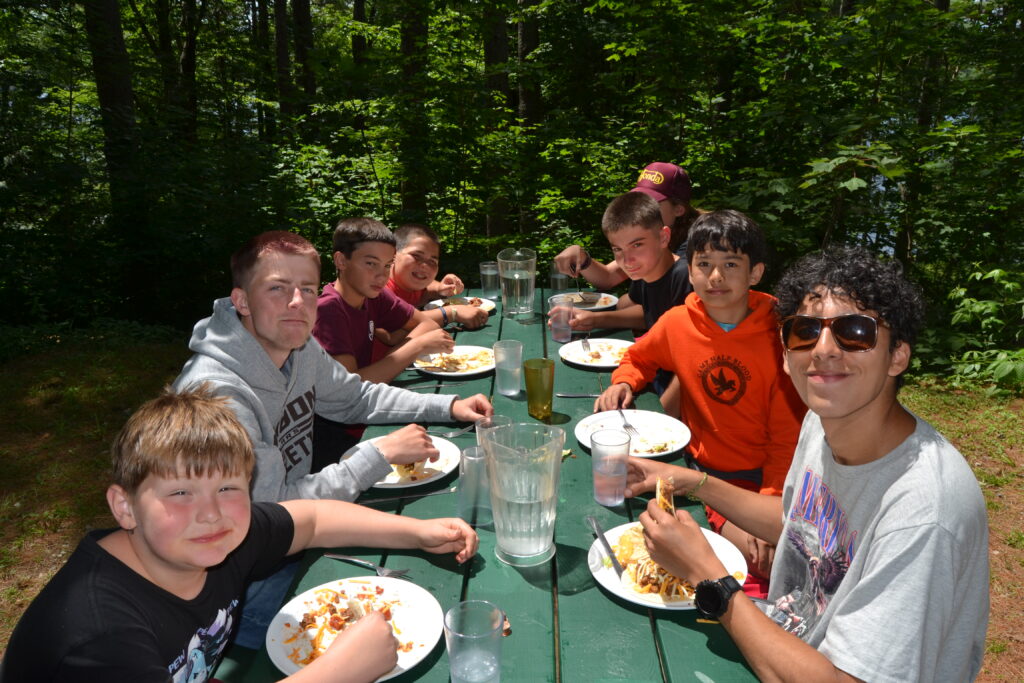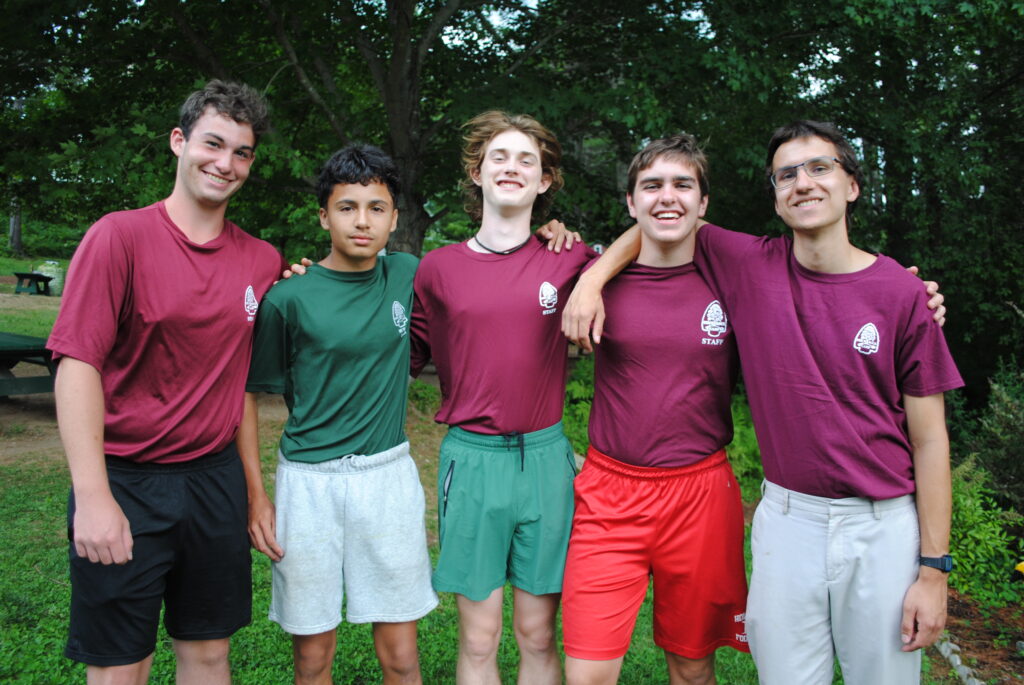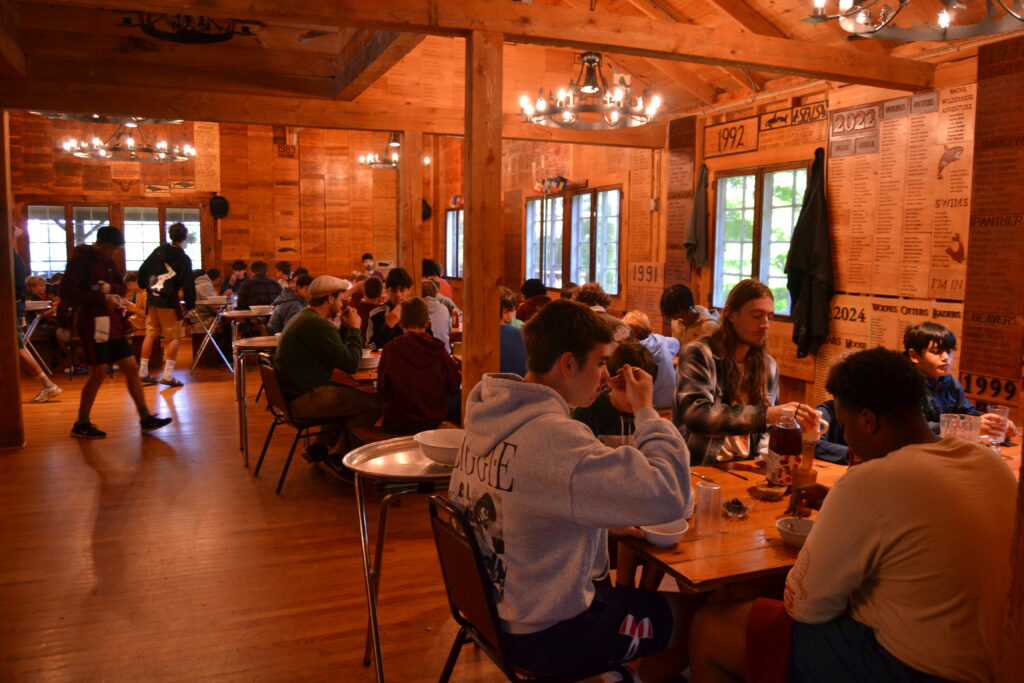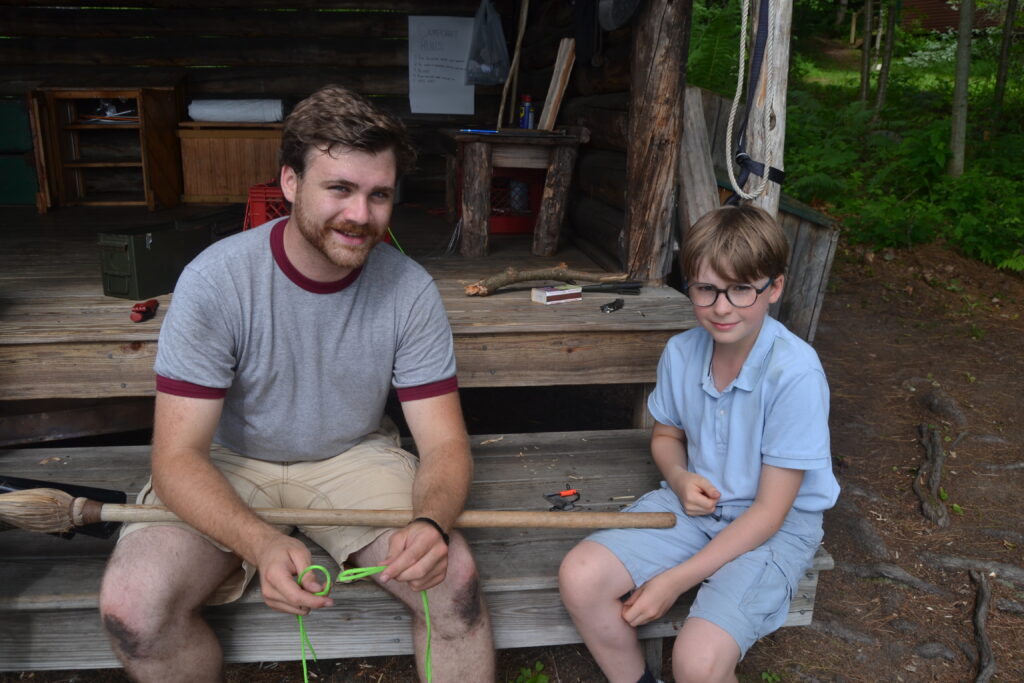How Summer Camp Instills Great Manners in Boys
Posted by: Birch Rock Camp

In an age where screens dominate daily life and casual communication often replaces face-to-face interaction, many parents worry their sons are missing fundamental lessons in courtesy and respect. The dinner table has become a battleground over elbows and napkins, and simple phrases like “please” and “thank you” sometimes feel like foreign concepts.
Parents searching for ways to instill lasting manners and social grace in their boys often discover an unexpected solution: the structured, community-focused environment of a traditional summer camp.
Why Traditional Camps Excel at Teaching Etiquette

The summer camp environment creates ideal conditions for learning and practicing manners.
Unlike home, where habits are entrenched and parents’ repeated reminders often go unheard, camp presents a fresh social context. Boys arrive motivated to fit in with their peers and earn respect from counselors they admire. This natural desire to belong makes them remarkably receptive to guidance about proper behavior.
At summer camp in Maine, the absence of digital distractions plays a significant role. Without phones constantly dividing attention, boys engage in genuine face-to-face interactions throughout the day.
They learn to read social cues, make eye contact during conversations, and respond thoughtfully rather than with half-attention while scrolling through a screen. These basic interpersonal skills form the foundation for more sophisticated etiquette.
The multi-age community structure also reinforces manners naturally. Younger campers observe older boys modeling proper behavior, while older campers take pride in setting good examples. This peer-to-peer transmission of social norms proves far more effective than adult instruction alone. When a 15-year-old demonstrates proper table manners, the 9-year-old watching him gains motivation that no parental lecture could match.
Specific Manners Taught Through Daily Camp Routines

Birch Rock Camp incorporates etiquette training into everyday activities rather than treating it as separate instruction.
During meals in the dining hall, boys practice placing napkins on their laps, waiting for everyone to be served before eating, engaging in polite conversation, and clearing their places properly. These repeated daily practices become automatic over the course of a summer session.
Cabin life provides another rich training ground for courtesy and consideration. Boys learn to make their beds with precision, including mastering the technique of creating crisp hospital corners.
They discover that keeping shared spaces tidy shows respect for roommates. They practice asking permission before borrowing items and expressing genuine appreciation when others help them.
The camp’s focus on traditional activities reinforces manners in action-oriented contexts that appeal to boys. During canoeing trips, older campers help younger ones carry boats, demonstrating the principle of assisting those who need support. In team sports and games, boys practice both gracious winning and dignified losing. They learn to congratulate opponents, accept referee decisions without argument, and encourage teammates who are struggling.
The Connection Between Manners and Empathy
Birch Rock Camp recognizes that good manners represent more than social polish. Proper etiquette serves as a practical expression of empathy, the ability to understand and share the feelings of others.
When a boy holds a door open for someone carrying equipment, he’s demonstrating awareness of another person’s needs. When he waits his turn to speak rather than interrupting, he’s acknowledging that others’ thoughts matter.
This connection between manners and empathy forms a central part of the camp’s educational approach. Boys discuss how specific courteous behaviors make others feel valued and respected. They explore how small acts of consideration, like saying “excuse me” when passing close to someone or “I’m sorry” when they make a mistake, help maintain positive relationships even when problems arise.
Through this framework, etiquette training becomes character education. Boys begin to understand that manners aren’t arbitrary rules imposed by adults, but rather tools for building the kind of community where everyone feels comfortable and included. This insight helps the lessons stick long after camp ends, because boys internalize the purpose behind the practices.
Long-Term Benefits Beyond Summer
Parents often report that manners learned at summer camp transfer surprisingly well to home life. Boys return with improved table manners, more respectful communication patterns, and increased awareness of how their behavior affects others. While some regression is natural during the readjustment period, the core lessons tend to persist.
The skills boys develop have implications far beyond knowing which fork to use. Research in child development shows that children who master basic social etiquette tend to form stronger peer relationships, perform better in school settings, and develop higher self-confidence. Teachers notice when students speak respectfully, follow classroom procedures, and show consideration for classmates. College admissions officers and future employers value candidates who demonstrate social polish and interpersonal awareness.
The empathy boys develop through practicing good manners also serves them throughout life. Understanding how to make others feel comfortable and valued becomes increasingly important as boys enter adolescence and young adulthood. The social skills learned at camp in Maine provide a foundation for navigating complex social situations with grace and confidence.
Creating Gentlemen Through Traditional Values

Since 1926, Birch Rock Camp has maintained its commitment to developing well-mannered gentlemen who embody traditional values while thriving in the modern world. The camp’s location on pristine Lake McWain in Waterford, Maine, provides the perfect setting for this character-building work. Surrounded by forests, fields, and mountains, boys experience the kind of old-fashioned summer adventure where courtesy and cooperation become essential survival skills.
The warm, cooperative community at Birch Rock makes the difference between rote instruction and genuine transformation. Boys don’t simply memorize rules about proper behavior. They live in a society where good manners enable the group to function harmoniously. They experience firsthand how consideration for others creates an environment where everyone can relax and have fun.
This immersive approach to etiquette education explains why camp experiences create such a lasting impact. Boys aren’t learning manners to please adults or meet external expectations. They’re discovering that courtesy makes their own lives better by improving their relationships and helping them contribute positively to their community.
Do you want to learn more about summer camp at Birch Rock? Get in touch with a member of our staff today!










